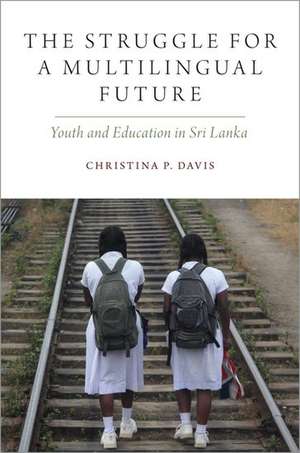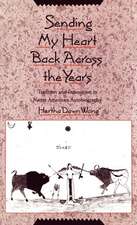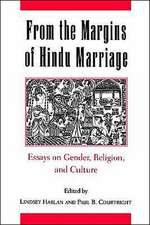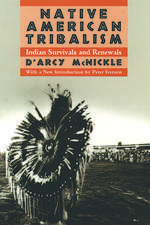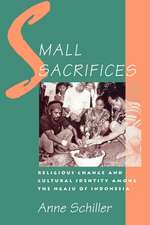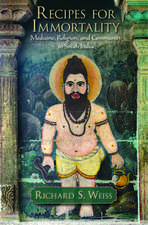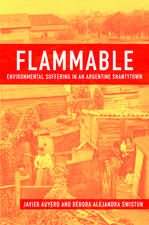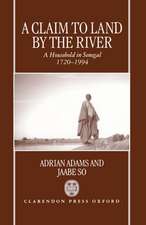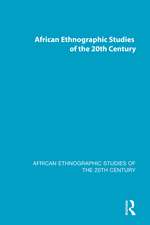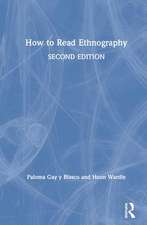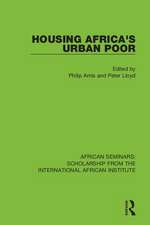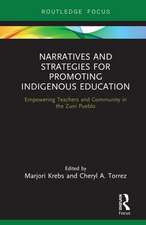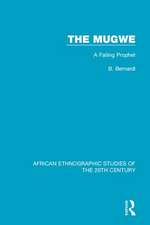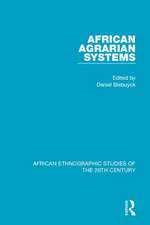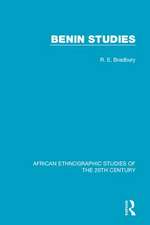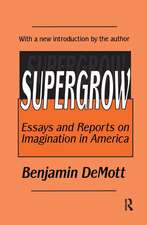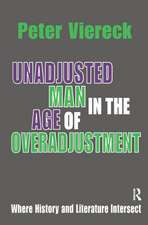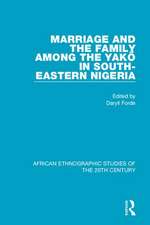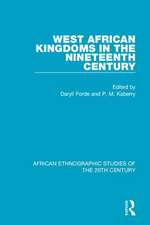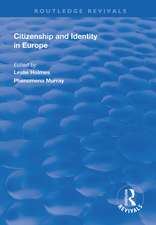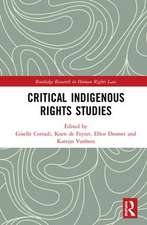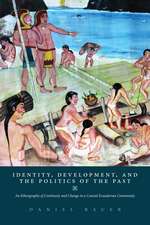The Struggle for a Multilingual Future: Youth and Education in Sri Lanka: Oxf Studies in Anthropology of Language
Autor Christina P. Davisen Limba Engleză Paperback – 27 feb 2020
| Toate formatele și edițiile | Preț | Express |
|---|---|---|
| Paperback (1) | 278.91 lei 31-37 zile | |
| Oxford University Press – 27 feb 2020 | 278.91 lei 31-37 zile | |
| Hardback (1) | 585.52 lei 31-37 zile | |
| Oxford University Press – 27 feb 2020 | 585.52 lei 31-37 zile |
Preț: 278.91 lei
Preț vechi: 305.04 lei
-9% Nou
Puncte Express: 418
Preț estimativ în valută:
53.37€ • 55.86$ • 44.42£
53.37€ • 55.86$ • 44.42£
Carte tipărită la comandă
Livrare economică 20-26 martie
Preluare comenzi: 021 569.72.76
Specificații
ISBN-13: 9780190947477
ISBN-10: 0190947470
Pagini: 216
Ilustrații: 10 illustrations
Dimensiuni: 231 x 155 x 15 mm
Greutate: 0.34 kg
Editura: Oxford University Press
Colecția OUP USA
Seria Oxf Studies in Anthropology of Language
Locul publicării:New York, United States
ISBN-10: 0190947470
Pagini: 216
Ilustrații: 10 illustrations
Dimensiuni: 231 x 155 x 15 mm
Greutate: 0.34 kg
Editura: Oxford University Press
Colecția OUP USA
Seria Oxf Studies in Anthropology of Language
Locul publicării:New York, United States
Recenzii
I recently included the book in a syllabus for a course consisting largely of anthropology majors and the students expressed great appreciation for its insights. This is an important landmark in the linguistic anthropology of policy and education.
The narrative style and the ethnographic detail presented here create a holistic picture of the sociolinguistic situation in pre- and post-civil war Sri Lanka in its struggle for a multilingual future.
The Struggle for a Multilingual Future offers a timely, incisive analysis of how ethnicity is (re)inscribed and lived through language in (post-)civil war Sri Lanka. This important book is remarkable for its ethnographic detail and for its keen sense of how language policies, and the ideologies that animate them, impact the imaginations and everyday lives of Tamil and Muslim students. Davis masterfully offers a vivid portrait of life in this fraught multiethnic and multilingual context.
Christina Davis gives us an intimate understanding of the effects of some two decades of civil war, showing us why, in the absence of national reconciliation, students place their hopes for a viable future in cosmopolitan cities and foreign migration. It is a fine study, and its implications are profound.
I believe that this book can offer valuable insights for those who are interested in delving into intricacies of language and identity politics in multicultural settings.
The book contributes important insights for scholars and for instructors who seek to teach students to understand the intersectionality of language, conflict, and education. It would be a great reading for courses in language and education, anthropology of education, and conflict and peace studies. This book offers a great example of how an anthropologist can skillfully address intersections in a comprehensive way.
The narrative style and the ethnographic detail presented here create a holistic picture of the sociolinguistic situation in pre- and post-civil war Sri Lanka in its struggle for a multilingual future.
The Struggle for a Multilingual Future offers a timely, incisive analysis of how ethnicity is (re)inscribed and lived through language in (post-)civil war Sri Lanka. This important book is remarkable for its ethnographic detail and for its keen sense of how language policies, and the ideologies that animate them, impact the imaginations and everyday lives of Tamil and Muslim students. Davis masterfully offers a vivid portrait of life in this fraught multiethnic and multilingual context.
Christina Davis gives us an intimate understanding of the effects of some two decades of civil war, showing us why, in the absence of national reconciliation, students place their hopes for a viable future in cosmopolitan cities and foreign migration. It is a fine study, and its implications are profound.
I believe that this book can offer valuable insights for those who are interested in delving into intricacies of language and identity politics in multicultural settings.
The book contributes important insights for scholars and for instructors who seek to teach students to understand the intersectionality of language, conflict, and education. It would be a great reading for courses in language and education, anthropology of education, and conflict and peace studies. This book offers a great example of how an anthropologist can skillfully address intersections in a comprehensive way.
Notă biografică
Christina P. Davis is Associate Professor of Anthropology at Western Illinois University.
